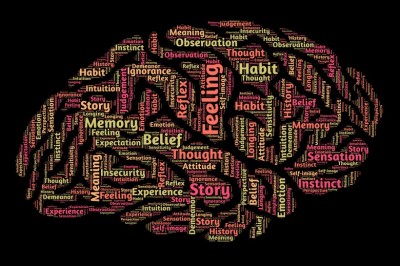IQ Test History
Intelligence tests date back to the late 19th century; the works of Sir Frances Galton explored the difference in the accomplishments of generations of the English aristocracy. Alfred Binet expanded on Galtons work to develop a test to be administered to French children to assist in predicting their academic success. American psychologist, Lewis Terman modified Binets test in the early 1900s to make it applicable for adults and establishing standards for performance relative to age. He also developed a scoring system which he called the intelligence quotient or IQ.
Todays IQ tests no longer compute scores using the IQ formula. Todays tests give a score that measures the participants performance relative to the average performance of others of the same age who have taken the test referred to as "ratio IQ"; others are based on a mathematical transformation of a raw score on the IQ Test based on the rank of that section in a normalization sample referred to a "deviance IQ score". Under the "deviance method" the average score is arbitrarily set at 100, thus those scoring above the average of 100 are considered more intelligent up to genius and those who score below 100 are considered less intelligent.
The two scoring methods yield similar results near the middle of the bell curve, but the older, "ratio IQs", yielded far higher scores for the intellectually gifted - which explains how Marilyn vos Saeant achieved a "ratio IQ" score of 228, a score that is unattainable under the "deviance method" of scoring.
Recent Findings
The current consensus is that general human intelligence is based on the volume and location of gray matter tissue in the brain. It is believed that the frontal lobes, specifically the lateral prefrontal cortex, are critical for fluid intelligence. A 2006 study of 307 children which measured the size of their brain then measured verbal and non-verbal skills indicated that there is a relationship between IQ and the structure of the cortex.
Over the past 100 years, IQ scores have increased at an average rate of three IQ points per decade in most parts of the world. This has been explained by better nutrition, smaller families, better education, and heredity. It is believed that 50% to 80% of a childs intelligence is attributable to the childs parents and the genes that they passed on to the child. Studies of twins raised apart substantiate these beliefs. It had been widely believed that through education we can improve upon our intelligence, but this is often not the case. Vocabulary size, for example, is more effected by heredity than by environment even though every word that one knows has to be learned. In our society words are readily available to everyone and the number of words that we learn has more to do with our genetic predisposition to learn then the vocabulary of the people around us.
The genetic effects on intelligence increase as the child ages, starting at 20% contribution in infancy and growing to 80% in adulthood, supporting the theory that genes provide an inherent propensity to learn and and retain.
However, social economic conditions do have an effect on developed IQ. It is believed that the potential is passed within the genes but social economic conditions determine if the inherent potential is reached. Within an impoverished family up to 60% of variance in IQ can be attributed to environment while the contribution of genes is zero. On the other end of the social economic spectrum the opposite is true; family environment has little to do with IQ variance while inherited genes are the primary determining factor of IQ.
A recent study, April 2008, at the University of Michigan and Bern suggests that intelligence can be marginally altered and changed over time through the use of challenging activities thus producing changes in gene expression patterns of the brain. Musical study at a young age tends to increase the potential for full achievement of IQ potential. If this proves to be true it would be contrary to prior held beliefs about the development of intelligence.
Studies conducted in Scotland of 11,282 individuals between the 1950s and 1960s support the belief that people with higher IQs live longer, tend to not suffer from sever depression, schizophrenia or Post-Traumatic Stress Disorder. More recent studies, 2004, show that tests of lower cognitive ability at a young age can serve as an early predictor of a propensity for the development of Alzheimers and dementia in a persons later years.
Putting this all together would indicate that a childs intelligence level is primarily determined by the intelligence levels of his or her mother and father and grandparents. From that point on the child will benefit from being part of a small affluent family that feeds them well and places them in a challenging educational environment.
Once IQ is developed to its fullest potential it becomes a good predictor of success in acidemic pursuits and some career paths. IQ does have substantial influence on academic achievement, while academic achievement has little influence on future IQ scores. IQ relates well to auditory,linguistic, memory, and academic achievement levels, but is less relevant when body speed, eye-hand coordination, and hard work are needed for job performance.
IQ Scores as a predictor of future income is highly debated. It is not difficult to point to and individual or group of individuals with low IQs yet earning extremely high incomes. This can usually be explained by some other inheritable trait that they have nourished thus maximizing that traits potential. With few exceptions it is generally agreed that it is important to have an above average IQ score to achieve above average income but highest IQ scores do not necessarily come with higher income levels. Below youll find the average earnings of some of the career paths that might be considered and the level of education required to make entry into the career field. The incomes shown represent the average income with a deviation of 40% plus or minus for highest in the field to the lowest in the field.
Career Degree Needed Average Earnings
Banking Masters $180,000
Dentist DDS $125,000
Dermatoligest MD $225,000
Heart Surgeon MD $365,000
Orthopedic Surgeon MD $405,000
Plastic Sergeon MD $325,000
University Dean Masters $135,000
College President Masters $200,000
Attorney Intelectial Property LD $200,000
Judge LD $150,000
Areospace Engineer Bachelors $110,000
Actor Performer None $50,000
Professional Athelete None $30,000
Director of Government Affears Bachelors $115,000
Plant Manager None $125,000
Software Engineer Bachelors $110,000
Geophysicist Bachelors $145,000
Petroleum Geologist Bachelors $145,000
Airline Pilot Bachelors $110,000
Nerosurgeon MD $467,000
Small Business Owner None $258,000
SmartestofUS.com is an IQ Test that asks 50 Intelligence questions form a database of over 3000 questions. All participants are ranked relative to all others who have taken the IQ Test. Each month the high scorer is recognized, the 12 monthly winners will participate in a test-off to find the Smartest of the U.S.




















